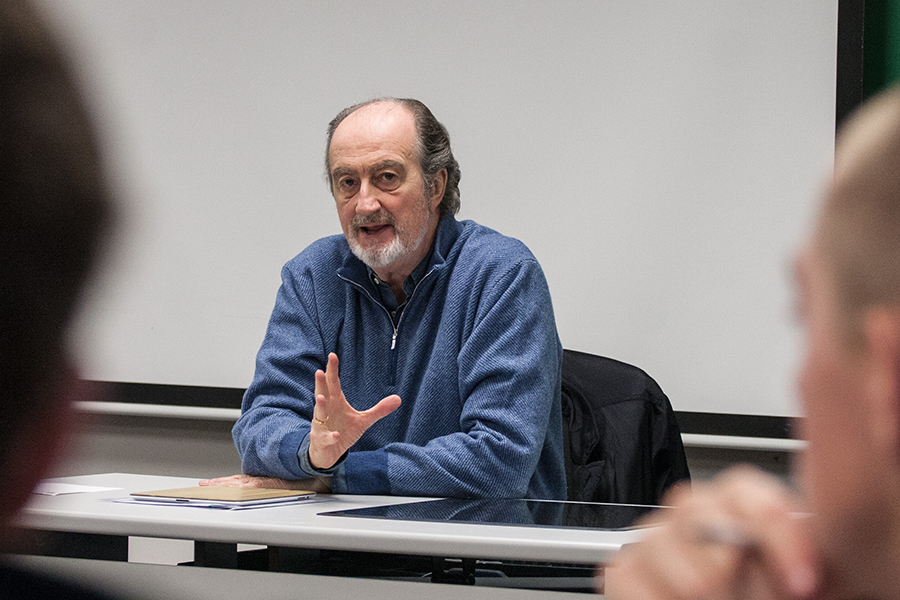

Venture Boldly

Office of Communications
2 East South Street
Galesburg, IL 61401


Knox College sophomore Samantha Watkins says she enjoyed a recent classroom visit by international correspondent John Hooper, who discussed his start in journalism and offered students his advice.
"He said that you have to go into a foreign country with your own viewpoints and not get too acclimated to it because you want to stay neutral," said Watkins, who is taking a newswriting and reporting class. "It was very unexpected."
Another student in the class, Duksangh Sherpa, said, "Learning about journalism in an academic manner is so different from seeing a journalist like him in person, and one with many years of experience at that."
Hooper, author of The New Spaniards, was on the Knox campus October 15-16 to interact with students, visit journalism and Spanish classes, and deliver a lecture.
In the lecture, Hooper said he never thought of himself as a linguist while he was in school. But thanks to the nature of his work, he now speaks six languages -- and that ability has served him well on the job.
"Every day, a foreign correspondent uses language skills," Hooper said in his presentation, sponsored by the Eleanor Stellyes Center for Global Studies. "The better you speak the language, the more you pick up on the nuances, the quicker you start to understand the society."
A longtime journalist, Hooper now is Rome, Italy,-based correspondent for The Economist and Southern Europe editor of The Guardian.
Born in London, England, Hooper speaks English, Spanish, French, German, Italian, and Portuguese. He said he learned several of those languages almost by accident, as he got assigned to work in different countries over the years.
Hooper's presentation, "A Foreign Correspondent in Spain and Italy: from Franco to Berlusconi," touched on his career experiences. He has reported and written about numerous topics, including wars and conflicts in Algeria, Kosovo, and Afghanistan, natural disasters, and the death of Pope John Paul II.
Early in his career, The Guardian asked him to go to Spain, where longtime dictator Francisco Franco had just died.
"Foreign correspondents go to places where things are going badly. They go to places torn by war and civil strife and economic crisis," Hooper said. "Spain was a unique opportunity to witness the evolution of a country that was going from good to better. It was certainly an uneven process."
Hooper said his first book, The Spaniards, resulted from his desire to write at length about the "social transformation" that was taking place in Spain.
Hooper's The New Spaniards is an excellent resource, said Knox College faculty member Robin Ragan, associate professor of modern languages (Spanish) and director of the Eleanor Stellyes Center for Global Studies.
"You can feel that the person who wrote it spent many years on the ground and has this attachment to the country," she said.
Published on November 04, 2013